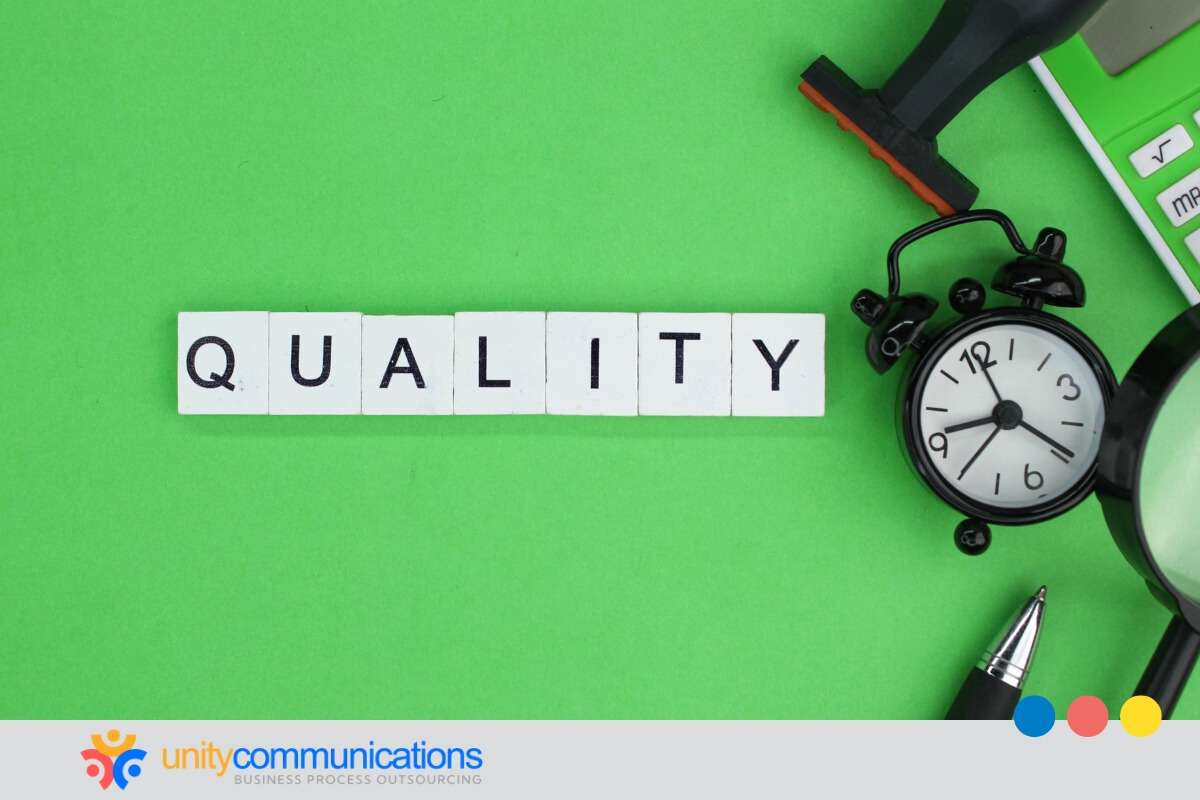IN THIS ARTICLE
Table of Contents
High-quality, engaging content is a cornerstone of successful marketing strategies. However, content creation requires significant time, resources, and expertise. With your team managing core priorities, delegating the function to a third party can be a lifesaver.
This raises the question: Which option should you choose? Comparing freelancers vs. business process outsourcing (BPO) agencies for content creation can be tricky. Each approach has its benefits and drawbacks. The right choice depends on your business goals, budget, and specific content needs.
This blog breaks down both options to help you decide. Let’s dive in!
The shift toward outsourcing content creation

Content creation remains a problem area for many businesses. In fact, 42% of B2B marketers cannot produce content consistently, while 27% struggle to create quality content. Businesses need dedicated experts to address these challenges.
Thus, many outsource content creation to either agencies or freelancers. Both options allow businesses to maintain a steady flow of high-quality content while focusing their internal resources on core priorities.
Freelancers vs. agencies for content: An overview
Freelancers and content agencies are the two primary choices for outsourcing content creation. The better option depends on a company’s needs, budget, and long-term goals.
Freelancers are independent professionals specializing in content creation. Companies can hire freelancers for projects such as blog writing, social media content, email campaigns, or niche content requiring subject-matter expertise. These individuals typically work remotely and offer a cost-effective solution for businesses seeking flexible, as-needed support.
What BPO and content agencies are, on the other hand, are full-service organizations that provide end-to-end solutions for content creation. This includes strategy development, content writing, editing, and even analytics. They work as an extension of a business’s team, ensuring consistency and scalability in content production.
Tasks freelancers and agencies commonly handle
In 2022, 37% of marketers outsourced copywriting as a content creation task. But this is just one aspect in a third-party content team’s arsenal.
Both freelancers and agencies can perform:
- Blog writing and article creation
- Social media content and captions
- Website copywriting
- Email marketing campaigns
- Case studies, white papers, and e-books
- Video scripts and multimedia content
- Content strategy and planning
- Search engine optimization (SEO)-focused content
Key differences between freelancers and agencies

Comparing freelancers vs. agencies can be challenging, especially when your business depends on consistent, high-quality content creation.
The global freelance platforms market could grow at a compound annual rate of 17.7% from 2025 to 2030. This gig economy expansion also means a growing pool of freelance talent is ready to provide businesses with quick, project-based content.
Conversely, content agencies take a structured, full-service approach to content creation. Their comprehensive services and team-based workflows make them an excellent choice for businesses seeking a long-term content partner.
Understanding freelancers vs. agencies is critical for making the right decision based on your goals, budget, and content needs. The following comparison clarifies the distinct benefits and challenges of working with freelancers and agencies, helping you plan your content strategy more effectively.
Costs
Both freelancers and agencies can help you manage content creation costs, but their pricing structures differ significantly. Here’s how they compare:
| Expense | Freelancers | Content Agencies |
|---|---|---|
| Labor | Pay per word, per hour, or per project—costs vary widely based on the freelancer’s skill set and experience. | Pay a flat retainer or project-based fee that covers writing, editing, strategy, and more. |
| Overhead | No overhead costs—freelancers work remotely and use their own tools. | Costs include access to a team, tools, and advanced services (e.g., analytics and strategy). |
| Scalability | Cost increases as you hire multiple freelancers. | Agencies scale efficiently by offering bundled services. |
Freelancers are often more affordable for short-term or simple projects, while agencies provide cost-effective solutions for large-scale or long-term needs.
Time considerations
When speed is the priority, freelancers are often the better choice. The hiring process is quick, requiring only a few emails. They are also typically available for last-minute requests—even outside traditional business hours or during holidays. However, freelancers often juggle multiple clients, sometimes leading to slower turnaround times for larger projects.
Agencies can be slow to onboard due to their structured processes but are better equipped for long-term content needs. They can dedicate full-time writers or teams to your projects for faster and more consistent delivery of high-volume or complex assignments.
Expertise and quality
Freelancers bring specialized skills, often excelling in niche industries or specific types of content (e.g., technical writing or creative storytelling). However, quality can vary depending on the individual’s experience and workload.
Conversely, agencies provide a team of experts in various fields, from content strategy and SEO to design and multimedia. This ensures consistent quality, even for complex projects requiring diverse skill sets.
Scalability and capacity for handling content needs
Freelancers work independently, making them ideal for one-off tasks or smaller projects. However, managing multiple freelancers for more extensive campaigns can be time-consuming and challenging.
Content agencies are built for scalability. Thanks to their structured teams, streamlined processes, and access to advanced tools, they can easily handle high-volume content needs. Agencies are better suited for businesses with ongoing content demands or complex, multi-channel strategies.
Communication and collaboration dynamics
Freelancers often provide direct, one-on-one communication, which can be beneficial for small specific projects. However, coordinating multiple freelancers can lead to communication issues and inconsistencies.
Agencies act as a single point of contact, handling all communication internally. They often assign a project manager or liaison between teams. This streamlines collaboration, especially for businesses managing large-scale projects or requiring cohesive branding across multiple platforms.
Reliability and accountability in delivering results
The reliability of freelancer services varies depending on their workload and professionalism. Delays or missed deadlines can occur, especially if they are juggling multiple clients.
A BPO vendor specializing in content creation is more reliable because it operates under structured agreements and service-level commitments. Its team-based approach fosters accountability and consistency, minimizing risks of delays or incomplete work.
Flexibility and customization
Freelancers are highly flexibility and can personalize content, making them ideal for businesses with niche content needs. They can quickly adapt to your brand’s voice and style and customize solutions without the constraints of a larger team.
In contrast, agencies provide a more structured approach due to their capacity for large-scale customization. They offer comprehensive services, including SEO, design, and content strategy, making them ideal for businesses needing integrated campaigns across multiple channels.
Long-term relationships and ongoing support
Freelancers are ideal for short-term projects, offering a personal approach and flexibility. However, maintaining a long-term relationship can be challenging as freelancers often juggle multiple clients, which might affect availability and consistency.
Agencies are better suited for ongoing support and long-term partnerships. Their team structure ensures reliable communication, and they can scale content strategies as your business grows. They are an excellent choice for enduring content creation needs.
The bottom line

Comparing freelancers vs. agencies ultimately comes down to a business’s content goals, budget, and content requirements.
Freelancers offer flexibility, quick turnaround times, and affordability, making them a solid choice for short-term or niche projects. Content agencies bring structure, scalability, and a team of experts capable of delivering consistent, high-quality content over the long haul.
For businesses looking to outsource their content creation effectively, partnering with the right service provider is key to meeting goals while optimizing time and resources. Ready to explore outsourcing options that work for you? Let’s connect.





